Senior Iranian, Russian, Chinese negotiators meet ahead of 8th round of Vienna talks
Iranian, Russian and Chinese delegates taking part in the Vienna talks on the removal of sanctions imposed on Tehran have met in the Austrian capital ahead of the eighth round of negotiations.
Mikhail Ulyanov, the Russian ambassador to international organizations in the Austrian capital, who also heads his country’s delegation in the Vienna talks, said in a tweet that the three countries’ delegations met Monday morning before the eighth round of talks, which is expected to get underway at the afternoon.
This morning the delegations of #Russia, #China and #Iran met to compare notes before the official start of the 8th round of the #ViennaTalks on #JCPOA later today. pic.twitter.com/AvBKwIn3qE
— Mikhail Ulyanov (@Amb_Ulyanov) December 27, 2021
He added that the meeting was aimed at comparing notes before the official start of the fresh round of the sanctions removal talks between Iran and the five remaining signatories to the 2015 nuclear deal, officially known as the Joint Comprehensive Plan of Action (JCPOA), which was abandoned by the US three years after its conclusion.
Chief negotiators representing Iran, China and Russia -- Ali Bagheri Kani, Wang Qun and Ulyanov -- attended the meeting.
'Negotiations to focus on new draft, Iran oil sales most important topic'
Iran’s Foreign Minister Hossein Amir-Abdollahian said earlier on Monday that the issues of guarantees and verification of sanctions removal are the main points of the new discussions.
Amir-Abdollahian noted that the talks will be based on a new, joint and acceptable document reached by the sides earlier this month.
“Today, we have a common and acceptable draft document that we call Dec. 1 and Dec. 15 draft, which covers both the nuclear issue and sanctions. That is, we have set the June 2021 draft aside and have come up with a new and common draft, and starting as of today, negotiations will focus on that draft,” Iran’s top diplomat said.
Amir-Abdollahian added, “The most important issue for us is that under these terms and these issues, we would reach a point where firstly, Iran’s oil would be sold without any limit and its money would be deposited in the Iranian banks’ accounts in foreign currency, so that, we would be able to avail ourselves of all the economic advantages [of the JCPOA] in different sectors.”
Iran chief negotiator, EU representative meet
Also on Monday, the Iranian chief negotiator to the Vienna talks held talks with the European Union's deputy foreign policy chief and head of the JCPOA Joint Commission, Enrique Mora.
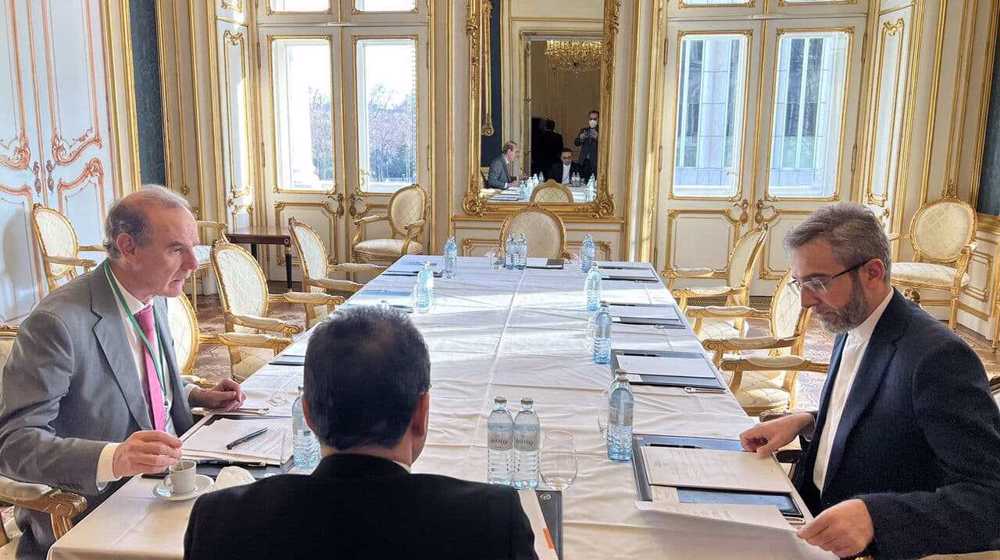
Collaborations and engagements has already started before the meeting of the Joint Commission of the #JCPOA. pic.twitter.com/Q2yKY0eFAp
— Permanent Mission of I.R.Iran to UN-Vienna (@PMIRAN_Vienna) December 27, 2021
Bagheri Kani also met and conferred with the French negotiator in Vienna ahead of the eighth round of the major talks.
France has been under fire from Iranian sides for the negative part it has played in Vienna talks with an informed source telling Iran’s IRNA news agency on Sunday that Paris’ two-day absence in the negotiations helped the negotiating sides make progress in preparing drafts.
Speaking on condition of anonymity, the source added that the French negotiating team did not play a “constructive” role in the negotiations and that it significantly slowed down the pace talks by throwing a wrench in the process.
“The presence of French representatives at the G7 foreign ministers summit in Liverpool and their two-day absence at a time when delegations in Vienna were working on the drafts in the previous round of negotiations led to significant progress. However, after their return from Liverpool, a disruptive trend started again,” he said.
China: Agreement possible before February 2020
Meanwhile, China’s ambassador to Vienna-based international organizations was also quoted as saying that the sticking points between Tehran and other remaining parties to the JCPOA are diminishing and it is possible to reach an agreement before February 2020.
He added that the new round of negotiations in Vienna is focused on the removal of sanctions imposed on Iran, noting that the negotiating parties have a common draft to discuss on how to remove sanctions.
During the previous round, the new Iranian administration presented two separate proposals on the removal of US sanctions and Iran’s return to its nuclear commitments under the JCPOA.
Russian Foreign Ministry Spokeswoman Maria Zakharova said on Friday that Moscow believes that the JCPOA is still topical and has no other alternatives.
"This deal has not lost its topicality, and all UN Security Council member nations, including, by the way, the United States, must observe it. We insist on that," she said.
"As for any possible alternatives to the restoration of the JCPOA, the Russian side insists that there is no alternative to the JCPOA," she added.
Iran and the five remaining parties to the JCPOA -- Britain, Germany, France, Russia and China -- resumed talks in Vienna on November 29 after a five-month hiatus, marking the first round of negotiations under President Ebrahim Raeisi’s administration and the seventh overall.
Iran and the P4+1 group of countries sat down for talks in the Austrian capital on December 9 after being paused on December 3, when the participants returned to their capitals for additional consultations on the two draft proposals that Tehran had put forward.
6 Israeli soldiers committed suicide in recent months: Reports
Diplomat discourages recourse to pressure, intimidation, confrontation against Iran
UN: 2024 deadliest year for aid workers amid genocide in Gaza
Gaza health official warns of hospital shutdowns within 48 hours
Israel kills 5 more paramedics in southern Lebanon: Health ministry
Iran to launch ‘new, advanced’ centrifuges in response to IAEA resolution: AEOI
Yemen fires hypersonic missile at Israeli airbase
VIDEO | New Delhi chokes under toxic smog as air quality remains at hazardous levels


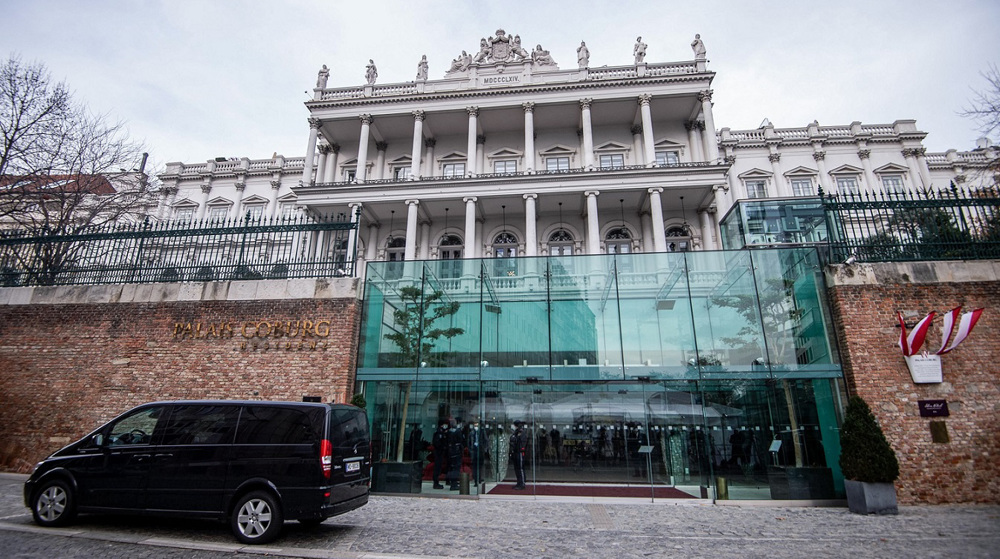
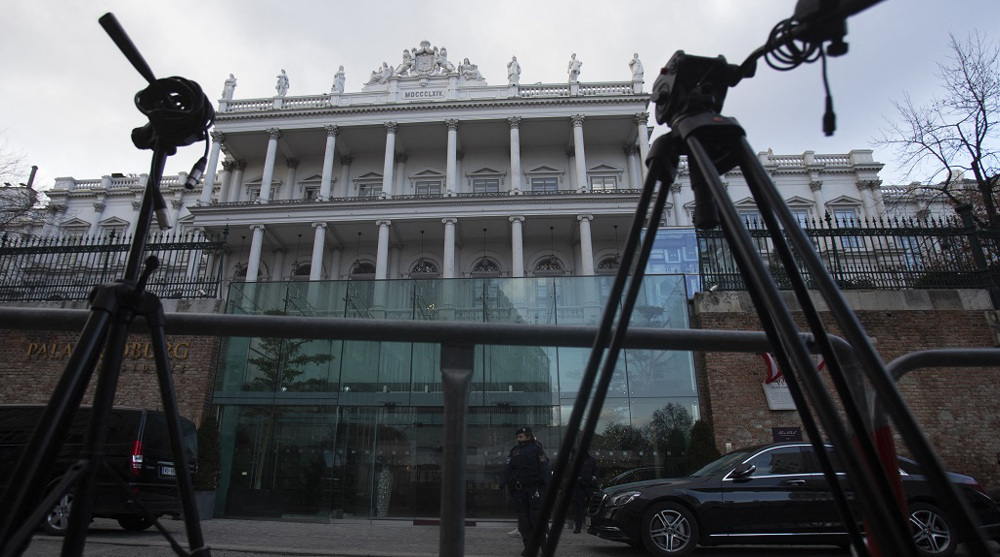
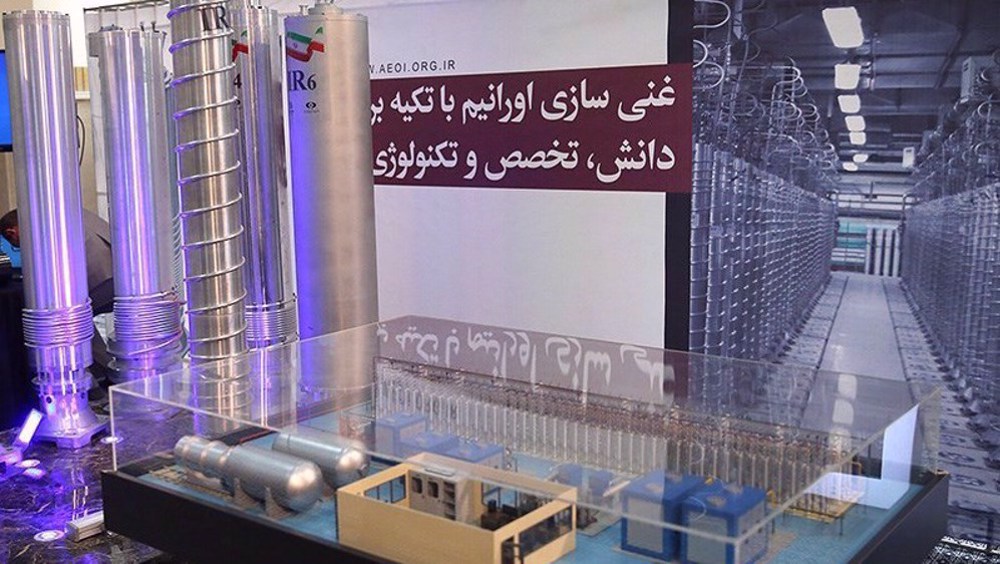
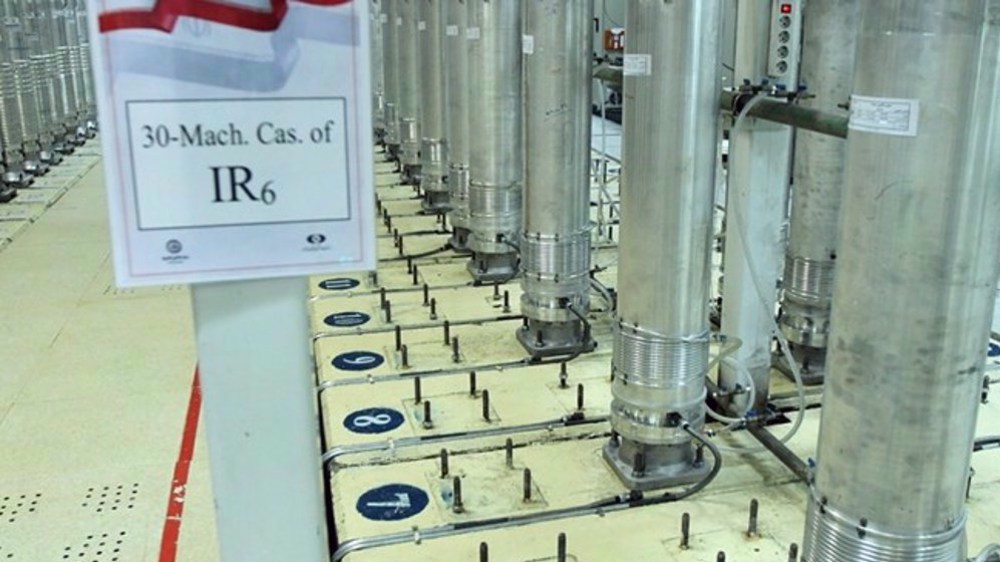
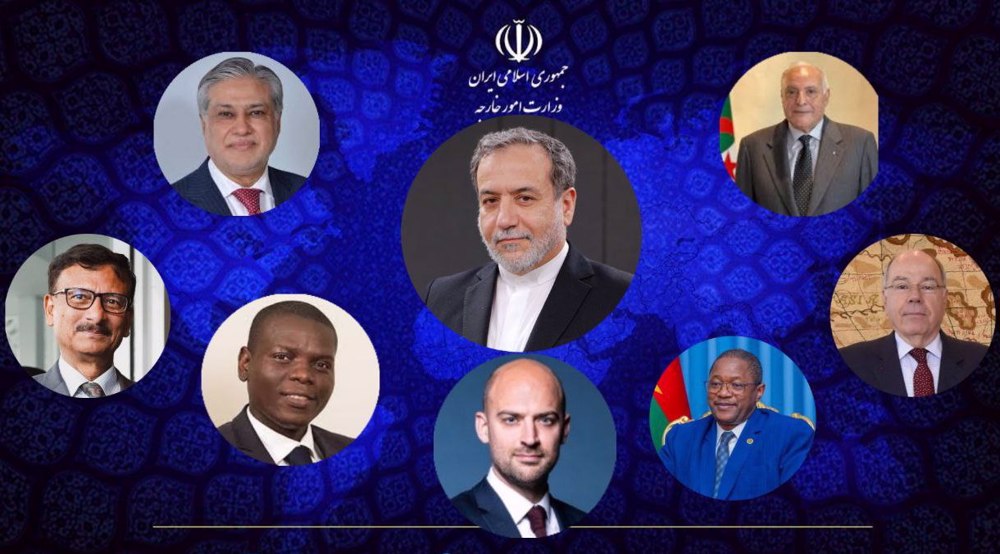




 This makes it easy to access the Press TV website
This makes it easy to access the Press TV website